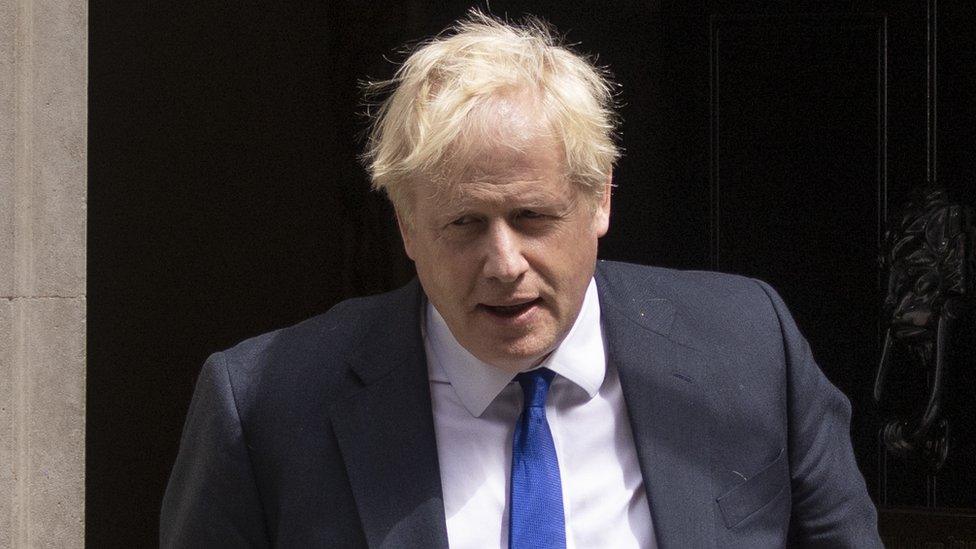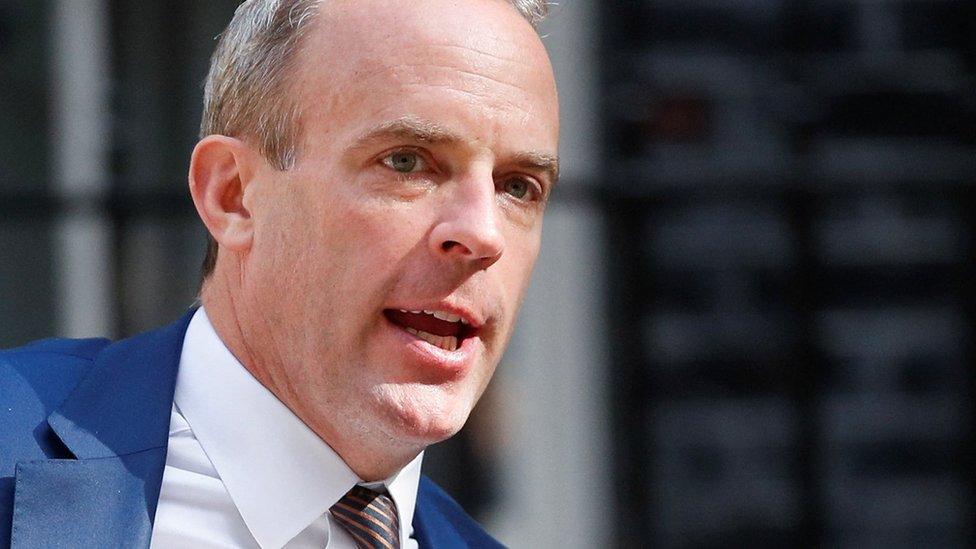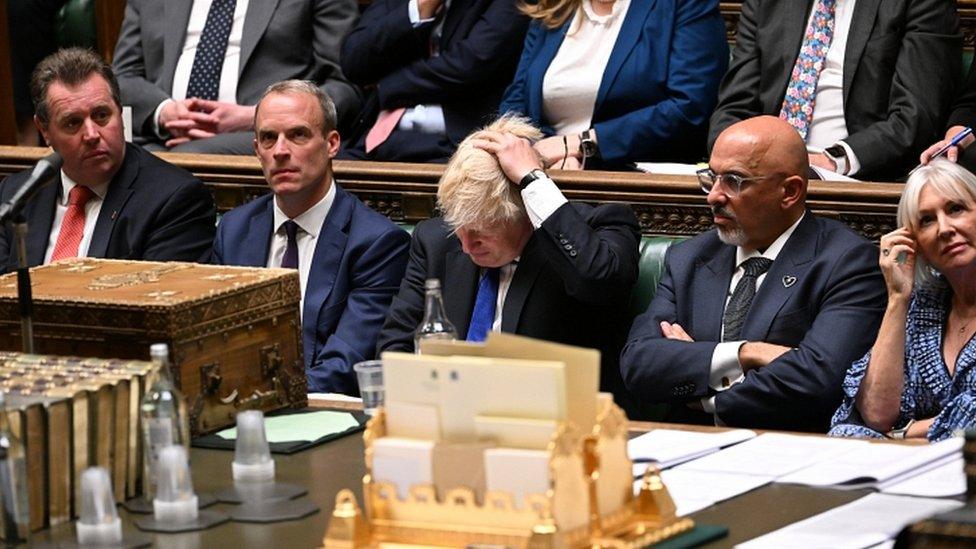Boris Johnson resignation: Your questions answered
- Published

Boris Johnson has resigned as leader of the Conservative party and plans to stay on as prime minister until a new party leader is elected by the autumn.
Mr Johnson has appointed a new cabinet following the wave of resignations from his government, which led to his resignation.
Our political correspondent David Wallace Lockhart answers some of your questions about the tumultuous events at Westminster:
'Boris Johnson's just resigned and he's forming a new government. Just exactly how does that work?' (John Fitzsimmons)
Boris Johnson is still prime minister and it looks like this will be the case until we have a new Conservative party leader.
He has the right - and an obligation - to keep the business of government ticking over.
That means he needs new ministers (remember, lots of them resigned recently). Some of them may well only be in post for a matter of weeks, as a new party leader will want to appoint their own top team.
'Are these temporary placements going to get ministerial severance pay when they have to resign as a new leader is elected?' (Mark Bolney)
For this we go to the Ministerial and other Pensions and Salaries Act 1991.
If a minister ceases to hold office - and is not re-appointed to government within three weeks - they are entitled to severance pay.
The act states that they should get a quarter of their annual ministerial salary upon leaving their role. It does not stipulate a minimum time period they have to spend in the job to get the payment.
'Is Dominic Raab not our Deputy PM and thus there to step in and cover now?' (Shelley Duck)
The simple answer is that he is but he won't be stepping in because there's not a vacancy - Boris Johnson is still prime minister.
As Deputy Prime Minister, Dominic Raab has stood in for Mr Johnson in the past - for example, doing Prime Minister's Questions (PMQs) when Mr Johnson has been out the country - but that doesn't automatically make him PM when Boris Johnson announced he was standing down as Conservative leader.
This isn't unusual. David Cameron and Theresa May both continued to serve as prime minister after announcing they were going.

'Is Boris Johnson going to be answering questions at PMQs next week?' (John Q)
Unless there's a new Prime Minister, yes.
Some voices (such as former PM Sir John Major) are calling on Mr Johnson to step down and for a short-term replacement to be installed. Under his proposals, they'd stay in place while the leadership contest takes place. But this doesn't look likely at the moment.
Barring any big developments, it will be Boris Johnson taking questions at PMQs next week.
'Why should we accept a leader appointed by the 1922 grey suits?' (Barry Tuck)
The 1922 Committee is the group that represents backbench Tory MPs. They will set the rules for the leadership contest, but the new leader will ultimately be appointed by the Conservative party membership (thought to be around 180,000 people).
Their vote is likely to come after Tory MPs have whittled the numbers down to two candidates.
The wider public will get their say at the next general election, due to be held by January 2025 at the latest.
'Could Mr Johnson get himself nominated to be leader again?' (Colin Fuller, Cheltenham)
That would be a highly controversial move and it doesn't look possible.
Under current Conservative leadership rules, a leader who resigns is not eligible to run in the subsequent leadership contest.

Can someone like Theresa May stand for Prime Minister again? (John Starbuck)
If she wanted to, yes!
She'd have to run to be the leader of the Conservative Party again, and win the upcoming contest.
It would be an unusual move, and it's highly unlikely, but there's no rule to stop her having another go at the top job.


If you have a question following Boris Johnson's resignation, please email us on: haveyoursay@bbc.co.uk, external.
Please include a contact number if you are willing to speak to a BBC journalist. You can also get in touch in the following ways:
WhatsApp: +44 7756 165803, external
Tweet: @BBC_HaveYourSay, external
Or fill out the form below
Please read our terms & conditions and privacy policy
If you are reading this page and can't see the form you will need to visit the mobile version of the BBC website to submit your question or comment or you can email us at HaveYourSay@bbc.co.uk, external. Please include your name, age and location with any submission.